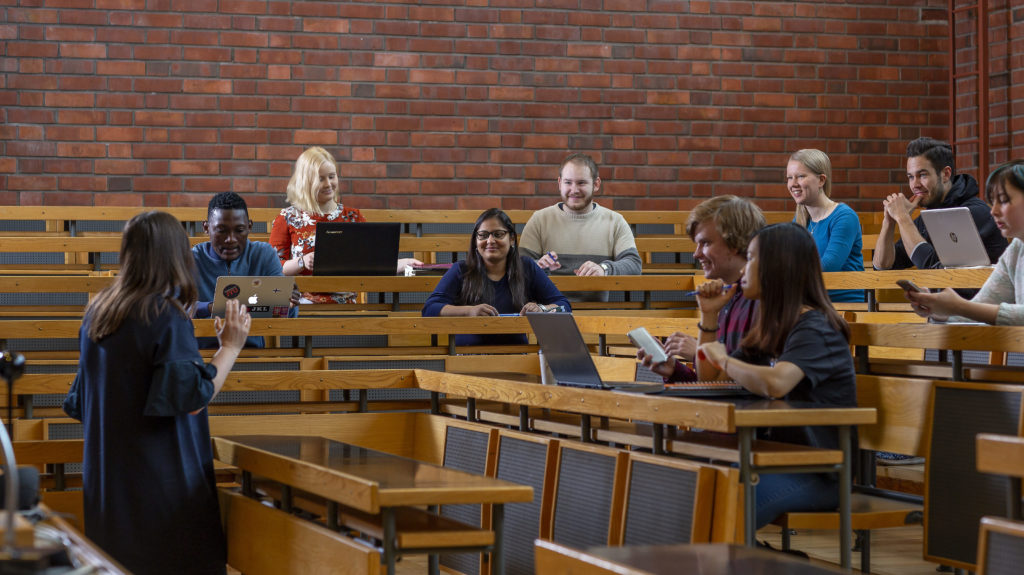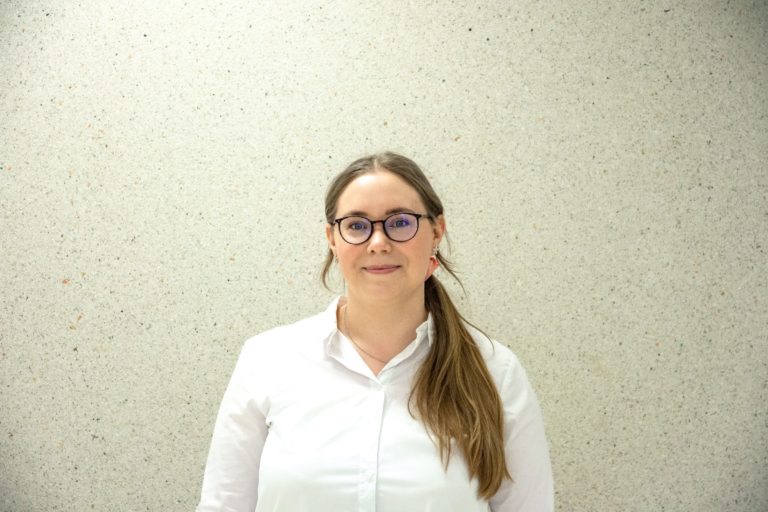Details
Where?
In Helsinki, Siltavuorenpenger 5 (Minerva building, University of Helsinki) and online
When?
25.4.2024, Time: 13:00-18:00 (Finnish time)
What?
Research seminar for master’s students to present their thesis work.

How?
Contact your thesis supervisors and tell them that you want to participate in the seminar and discuss with them how your participation can be recognised as part of your studies.
Submit your presentation proposal by 11 February (see more details below).
Register to the seminar as onsite or online participant when the seminar registration is opened on 15 February, 2024.
Registration
Participation in GINTL Research Seminar is free of charge. You can participate either onsite in Helsinki or online. Register through the online form by 17 April, 2024.
Programme
Location: Minerva Plaza, Siltavuorenpenger 5, Helsinki and online
Kindly note that links for online participation are only shared with registered participants.
12:00-13:00
Registration opens
Lunch at own cost (e.g., at student cafeteria Olivia)
13:00-14:00
Opening session
Opening remarks
Panel discussion: Navigating academic career paths to PhD and beyond
Through the panel discussion, we hope to unpack and learn from the career trajectories of academic professionals in the light of their lived experiences in a society defined by cultural, socio-economic and political forces. Each of the panelists – Ameera Masoud, Emmanuel Acquah, Juha-Matti Latvala, and Ritva Kantelinen – have a unique career story which offers lessons in shaping one’s identity as a researcher, building oneself as a successful academic in Finland, and transitioning in and out of one’s role as a researcher. The panel discussion aims to bring forth some of the key lessons that can guide master’s students and early career researchers through their academic journey to PhD and beyond.
Location: Minerva Building, Minerva Plaza
14:00-14:15
Break
14:15-15:15
Parallel session 1
Location: Minerva Building
Thematic Group 1: Teacher Perspectives and Experiences
Chair: Olli-Pekka Malinen
1. Vanessa Lusa: Riojan Educators’ Narratives on Teaching Students with Immigrant Backgrounds: The Positives of Culturally and Linguistically Responsive Teaching
2. Serena Hoeses: Junior Primary Teachers’ Perceptions of Khoekhoegowab as a Medium of Instruction in Namibia
3. Yuchen Liu: Primary School Teacher’s Perspective on ‘Learning in Regular Classrooms’ Initiative for Inclusive Education in China
4. Ariunkhishig Gonchigdorj Primary teachers’ attitude towards implementing inclusive education in Mongolia
Thematic Group 2: Teacher Well-being and Professional Development
Chair: Jenny Niu
1. Shizhao Zhang: Role of Job Crafting and Basic Psychological Needs in Teachers’ Burnout: Multi-dimensional Examinations
2. Eunji Jeong: Early career teacher agency in K-12 Education: A Scoping Review of Empirical Studies
3. Tsvetelina Dimitrova: Personhood and Professionhood in ECEC Teacher Education
Thematic Group 3: Global and International Perspectives in Higher Education
Chair: Sai Väyrynen
1. Afsheen Ahmed: Internationalisation of Higher Education in Finland: An Investigation into Career Pathways and Challenges
2. Albina Marchenko: Foreign nationals and their well-being behind internationalization of higher education: case study of Oulu University
3. Ying Yang: Chinese University Students’ Experience of a Pilot Well-being Course from Finland
15:15-15:45
Coffee break
15:45-16:45
Parallel sessions 2
Thematic Group 4: Inclusion and Multicultural Education
Chair: Elizabeth Eta
1. Leandra Ve Saskia Romey: Transference of Social and Cultural Capital between teachers and students with a migration background in Bremen, Germany
2. Georgia Vereniki Nanou: Combining Differentiated Instruction with practices from Intercultural Education: an exploratory case study from a Finnish classroom
3. Laura Pimiä: Possibilities of hybrid education in Ghana – Home Economics’s student teachers views
Thematic Group 5: Societal Issues and Educational Policies
Chair: Hanna Kontio
1. Maria-Nefeli Marouli: A case study on the relationship of education policy and practice in regard to migration of a school in municipal setting in Central Finland.
2. Laurel Seppälä: Desirable Citizens: Education in Putin’s Russia
3. Dilara Keven: Examining the Influence of Socioeconomic Background on Higher Education Plans in Turkey: Insights from Student Perspectives
Thematic Group 6: Education for Sustainability and Well-being
Chair: Deepti Bora
1. Suhong Ma: Connecting children with nature: exploring environmental education in the Chinese context
2. Haley Chen: Fostering Global Citizenship Education: The Role of Community of Practice in Edinburgh Schools
3. Dihang Shen: The Impact of the 1.5 MAX Initiative on the Existing School Education Curriculum in Malawi through Public-Private Partnerships
16:45-17:00
Closing session
Marjo Mäenpää, FinCEED – The Finnish Centre of expertise in Education and Development
17:00-18:00
Networking event
Location: Minerva Building, Minerva Plaza (in person participation only)
Call for abstracts (closed)
What kind of research can be shared in the seminar?
We invite presenters to discuss their research findings related to education in a supportive, yet critical academic environment. In 2024 the title of the seminar is “GINTL Research Seminar 2.0 – Emerging research in the global education landscape”
The presentation submissions can be linked to the following themes:
- Education development which can be understood as development of practice and education systems, policy development, or analysing how education operates at different levels, and how it can fulfil its societal functions.
- Internationalisation of education which can discuss how international partnerships, and collaboration of educators across educational systems, can contribute to quality education.
- International, intercultural, and interdisciplinary approaches to studying education, where using qualitative and/or quantitative methods are all welcomed.
- Other emerging research themes in the global education landscape.
In the discussions during the seminar, we aim to connect the presented thesis research to the broad education development targets at national and international levels. Together, we will reflect how research can help to identify, understand, and solve challenges related to education.
We invite master’s students to present either work in progress (preliminary research results) or give a presentation based on their finalised thesis. The seminar is an opportunity to discuss your findings and receive feedback to help identify the contribution of your work.
How can I participate as a presenter? – Instructions for the submission of abstracts
- Length: Up to 2,000 characters, excluding title, keywords and the list of references
- Language: Write your abstract in English.
- More detailed information can be found in the submission form below.
Read guidelines in the call of abstracts carefully and, if needed, ask your supervisor or peers to assist you with writing the proposal.
Can the GINTL Research Seminar be recognised as part of my studies?
This is possible but must be agreed through your home institution. Tell your thesis supervisors you want to participate in the seminar and discuss with them how your participation can be recognised as part of your studies.
Is there funding available?
Travel funding can be made available through your home institution. Find out if your university can support you with your travel expenses to Helsinki. If you are not able to travel, you can participate in the seminar online.
Important dates
Abstracts
19 January: the call opens
11 February: the call closes
19 February: announcement of accepted abstracts
Registration
15 February: registration opens
17 April: Registration closes
Contact















